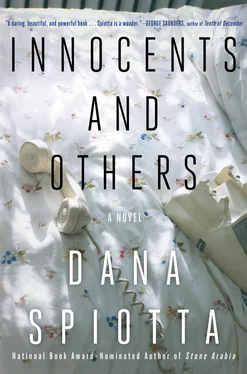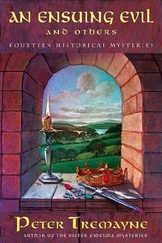* * *
My early films came out of attending NYU’s Tisch film school and the contacts I made there. I have benefited from the generosity of my professors, who are accomplished filmmakers, and for this I am eternally grateful. But all of that is known and well established. I want to tell a different origin story today, because I am convinced that your sensibility is formed at a much earlier stage. What comes later is a matter of determination and luck, but the details are prosaic and practical. The earlier sensibility is what makes you particular (and ambitious, I think).
I grew up in Los Angeles in the ’70s and ’80s. I had a loving but chaotic childhood with a confusing amount of privilege and hardship. My parents divorced when I was eight, and we never had actual money. Nevertheless, we often lived as if we did. My father — who died several years ago — went through various forms of bankruptcy during my childhood, and my mother had a steady but low-paying job as an English and drama teacher, which required her to stay after school most days for rehearsals and theater club. I was an only child, so I spent many afternoons in the house alone. This was nothing unusual in the ’70s — everyone seemed to have divorced parents and working moms, and people thought nothing of letting kids be on their own for the hours after school until dinner. It was lonely but also full of freedom, which I largely used for watching TV and eating. Most days I watched TV for at least six hours. And this was in the bad old days, when television was truly awful: The Love Boat, Charlie’s Angels, The Bionic Woman, Good Times, The Jeffersons, Donny and Marie. On the weekends it was Saturday-morning cartoons that were even worse: except for the bright spots of Warner Brothers, most of the animation was two-cell and rudimentary. It was Spider-Man and Super Friends and Josie and the Pussycats. I watched this stuff for years, and most of it I watched over and over. What we used to call, with an air of weary resignation, “reruns.” The only way I can explain just how much TV shaped my childhood is to give you a description of one of my days, which was also typical for me. A Tuesday, for example, when I was twelve, went like this:
Get home and throw giant book bag on the kitchen table. Pour large glass of Tab and also consume a Cambridge or SlimFast powdered mix or whatever else we were “doing” this month (my mother and I were often on a fad diet — it was something we did together). Turn on TV. Wait — that was first, TV on with the volume way up so I could hear it in the kitchen as I mixed my snack. I watched old syndicated reruns after school. (Usually I watched The Odd Couple and Emergency! , but sometimes it was The Mod Squad or The Partridge Family. ) At around five, I would pull out my homework as I continued to watch. At six I would stop because 1) my mom came home, 2) the news was on. I would go to my room, put on a record, and do more homework sitting on the floor. I might play with my dad’s video camera, or dance or even do some halfhearted sit-ups. Then dinner in front of the TV while Mom and I moved into Tuesday prime time: Happy Days, Laverne & Shirley. The world in half-hour increments and punctuated by an endless stream of repeated commercials. At nine o’clock it was more “adult” time, and I often read a book while looking up and following Three’s Company and Taxi. Here is the thing about this that amazes me: I did read and do my homework during this TV watching. Maybe because the shows were not demanding or engaging I could concentrate on what I was doing? The other thing that seems important to note is that I knew how bad, as in quality, a lot of this stuff was. I knew Three’s Company was stupid and not funny. I did not laugh with the fake laughter on the soundtrack. I watched a lot of situation comedies, but I don’t think I laughed much at all. I enjoyed watching it just the same. It was comforting, the TV itself, its familiar sound and its images. It made the house feel lively and comfortable. It was how I connected to the world outside my home. In those days everyone watched the same shows on the same days, so you could talk with your friends about what was on One Day at a Time or M*A*S*H. It was a continuous thread. So my generation (I was not unique!) was raised on some terrible TV, but with bright spots. Here is how I look at it now: the shitty stuff made you really appreciate the good things. When something good or interesting was on, it was like the world lit up with possibility, and then you trudged through the crap until you found the next good thing. I loved the reruns of I Love Lucy and The Dick Van Dyke Show. To this day just the sound of those theme songs makes me happy in a small but deeply embedded way, almost a visceral response. I watched those shows, and I would laugh, and the sound would surprise me and sound so different from the constant laughter on the TV speaker. It made me stop, self-conscious for a second, my own real laughter coming out of my mouth with the dusty haze of sun coming in streams through the drapes in the midst of my afternoon solitude. It is the only time I felt lonely, when I wished I had a little brother to catch the eye of and see if he was laughing too. There is some weird dynamic that happens when people laugh — like a usually suppressed secret about the silliness of the world is being blurted out, and you need someone to share it with you. You need someone to hear your laughter for it to work right. (Maybe that is why insanity seems to be exemplified by people laughing maniacally at their own private jokes.) But I was very drawn to things that really made me laugh. On the weekends I stayed up past 11:30 to watch Saturday Night Live —that was a big bright spot for me. I loved the adult jokes, the ones about sex or drugs that I didn’t really get, but I wanted to get. I would laugh along because I could feel the joke in my body, in the performers’ bodies, and in the sound of real live laughter. That was my modus in those days: laugh at the funny jokes even when you don’t get them. It is like a wish about your future. Part of the joy was staying up late, after my mom went to bed, for Saturday Night and, on Fridays, the Midnight Special. I had the TV Guide , and I circled all the shows I had to see. Who was on Dinah Shore or Mike Douglas, for instance. I circled movies I wanted to see too, but I wasn’t as into films at that point. I wish I could say I was devoted to film noir or that I stayed up until 2:00 a.m. to glimpse Johnny Guitar like some people, but I didn’t have much interest in old films then. I liked regular movies. I would circle The Parent Trap with Hayley Mills, or later watch edited-for-TV versions of dramas like The Turning Point, Julia , or An Unmarried Woman. I loved musicals — the classic MGM ones from the ’50s but even the lousy later ones from the ’60s. I loved the idea of feeling so strongly about something you would break out into a song and dance. But mostly my sensibility was being formed by all the bad TV that washed over me and created a constant hum of cliché and contrivance, ideas I could see even as a kid as shopworn and formulaic. But instead of this making my taste hackish, I think it made me hunger all the more for something different. It made me imagine what might be good or even better. What struck me through the noise of ads, processed TV, and dull fake laughter, what I hungered for, was something that surprised and delighted me. I was raised on a constant stream of uninspired images, but I was primed for something more than the dumb double entendres of Mr. Roper or the “awww” platitudes of One Day at a Time. And into this hunger came my first piece of luck at exactly the right time for me: when I was in ninth grade, I took an English class that included a lot of unusual films.
Читать дальше












